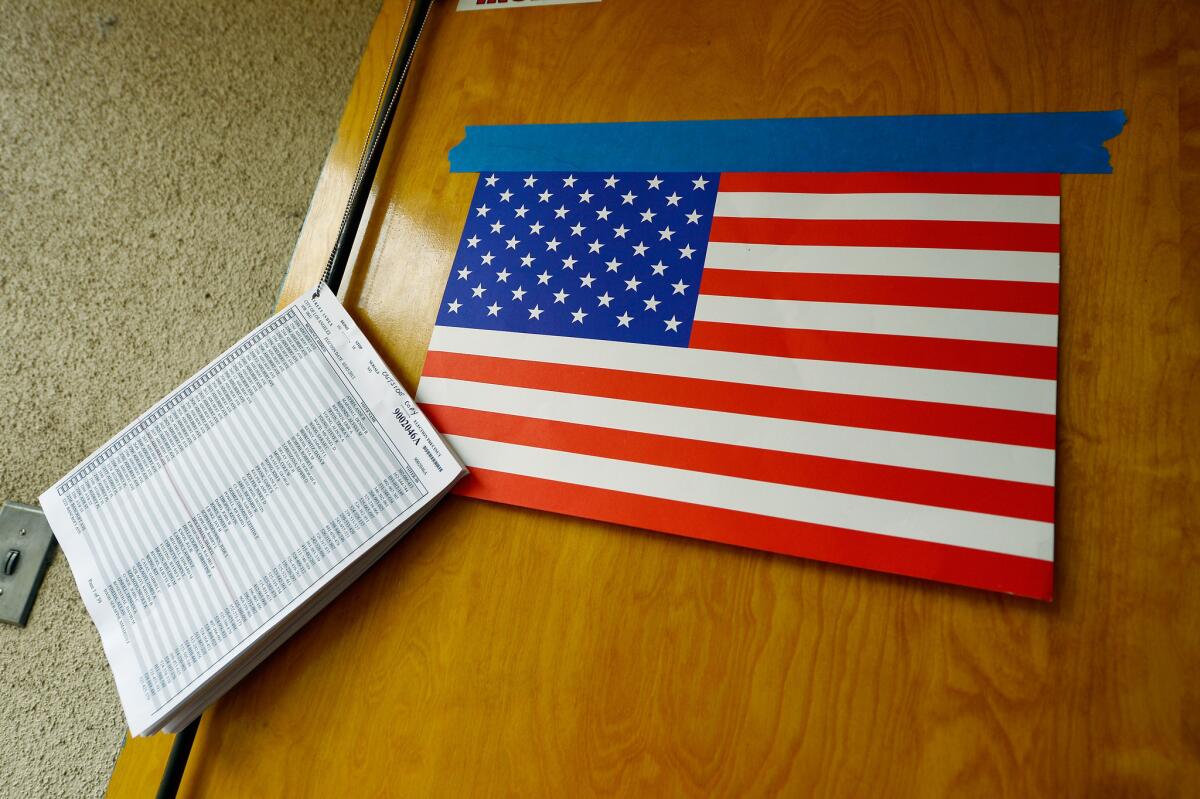Answering the tough questions in L.A.

- Share via
With all due respect to the groundhog, it was voters who came out Tuesday and saw their city’s shadow, guaranteeing 11 more weeks of campaigning. That’s no cause for celebration in a Los Angeles weary of shallow debate answers and silly campaign mailers.
Not that this campaign season has been shallower or sillier than most, but it certainly has been uninspiring. The candidates, by and large, were unimaginative; all too often they pandered or ducked the tough issues. Is that how it’s going to be between now and May 21 in the runoffs?
It need not be. The March 5 primary was round one, and no doubt the finalists are already returning to their donors to hit them up for round two. The contributions and the commercials will keep coming. And that’s fine, as far as it goes. The real hard work, however, will fall not to donors or consultants or candidates but to voters. Focused now on the election, they can, if they choose to, home in on the issues that have been batted around for several weeks, and can demand that candidates grapple more seriously with their plans and promises.
PHOTOS: L.A. candidates’ misleading campaign fliers
The candidates themselves have brought inadequate leadership to the campaign, but voters can set their agendas. They can demand that candidates find their inner leaders. You’re going to balance the budget? You’re going to retain and expand city services? That’s great. How? How will choices be swifter or smarter with you in place than they have been up to this point?
The three or four dozen (seriously) debates held during the primary season served several purposes. They allowed the sponsoring organizations to present the candidates with their wish lists. They allowed the electorate to hear the candidates’ one-liners, and to get an understanding, if only slight, of the types of challenges the city faces.
It’s time now to go deeper and have a discussion about what the city wants and needs, what it can afford, what it must learn to do without, and for how long. The City Council candidates who made it into the runoff must answer the same questions as the citywide candidates. Voters are well within their rights to ask them: Who would you be working for? Whose calls will you take? What are your priorities? Not merely what their positions are on medical marijuana, a downtown stadium and digital billboards, but why, and how those positions illustrate their broader approach to city issues.
PHOTOS: Los Angeles voters go to the polls
There was a time and place for the mail-in slogans about rolling up sleeves, bringing everyone to the table, making the tough choices. That’s over. Los Angeles is a city of immense challenges and enormous untapped potential. If, over the next two-plus months, candidates don’t respond every now and then to questions about the city’s problems and its future by saying, “I don’t know,” either they’re being dishonest, or we are not asking the right questions.
More to Read
A cure for the common opinion
Get thought-provoking perspectives with our weekly newsletter.
You may occasionally receive promotional content from the Los Angeles Times.






